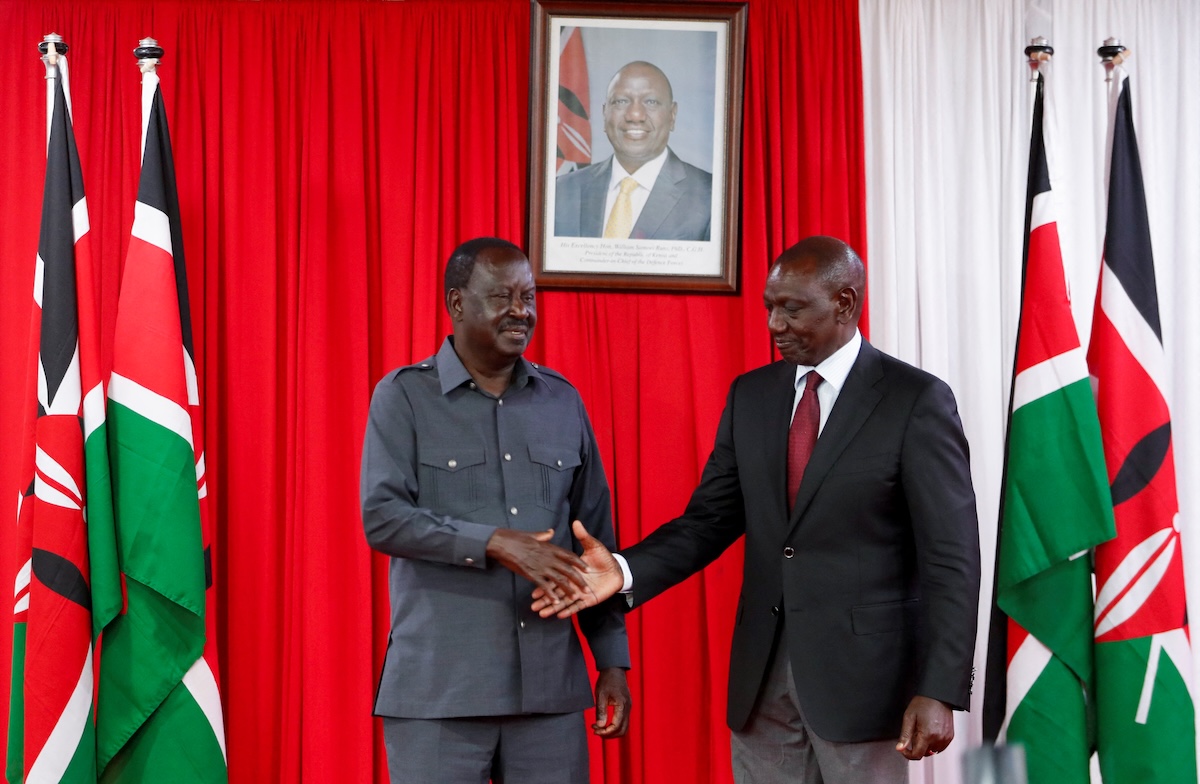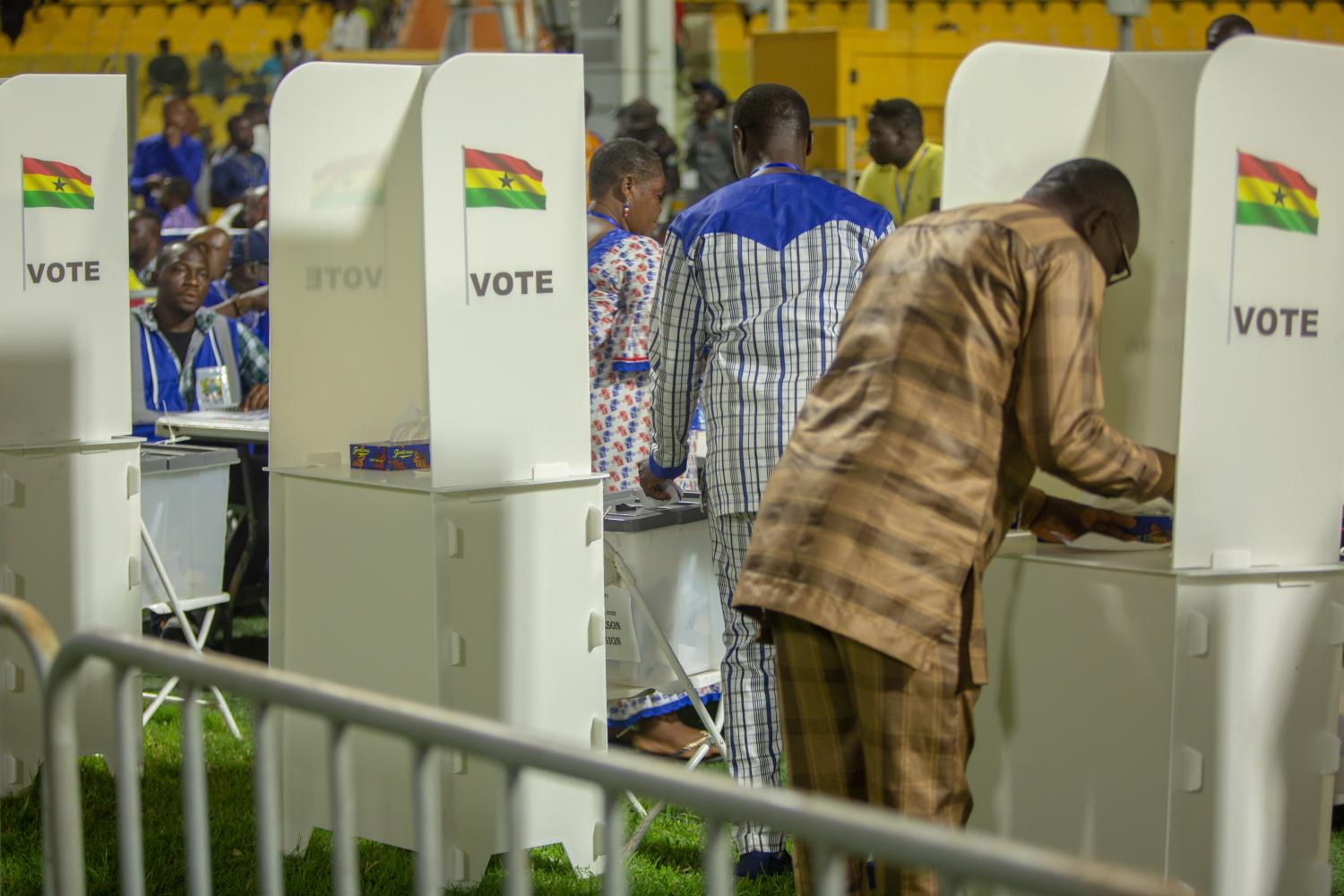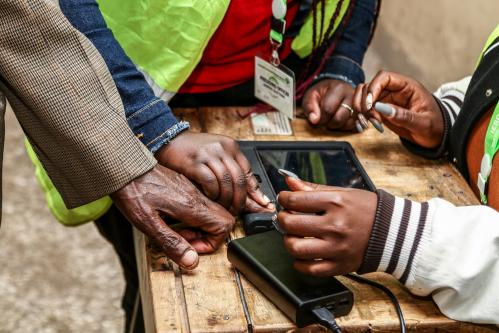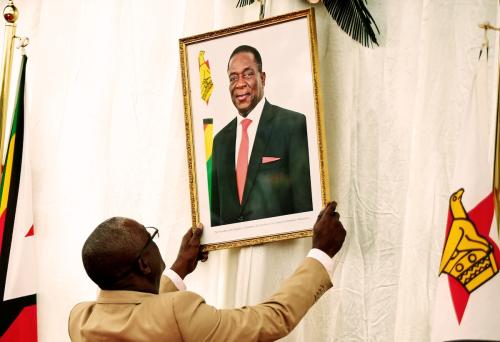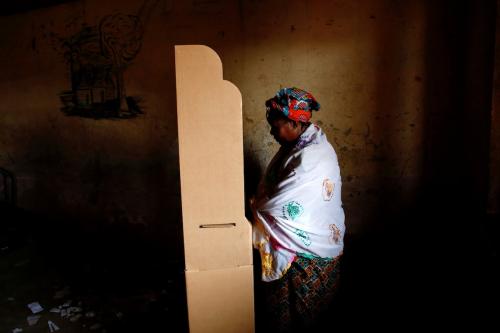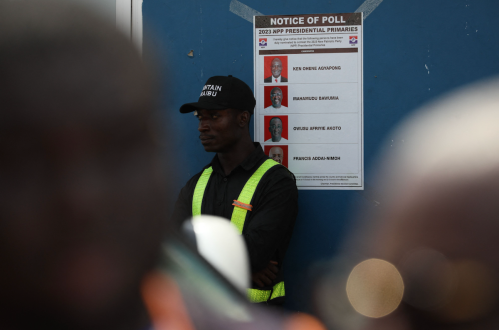This case study is part of a project on the state of democracy in Africa. See our other works from this project.
Kenya is a resilient democracy that has been able to endure considerable challenges to its democratic institutions (Cheeseman et al, 2020; Mueller, 2014a), securing its place as a key player in Africa. Despite facing multiple challenges, including electoral violence, corruption, and ethnic conflicts, Kenya has shown a remarkable ability to reform and adapt, thus laying the foundation for democratic development and citizens’ commitment to democratic ideals. How do we explain Kenya’s democratic resilience despite persistent challenges?
This paper examines how Kenya has bounced back from several critical junctures by using a composite accountability lens (diagonal, vertical and horizontal). Diagonal accountability—which focuses on the role of civil society, civic participation, and media freedom—has been growing in the country for several decades. For instance, since the late 1980s, civil society organizations have played a key role in pushing for free and fair elections and promotion of human rights (Mati, 2020). Along with the advent of a vibrant and autonomous press, the media has uncovered maladministration in different political regimes, remaining key in providing information on corruption and poor governance in general. (Mueller 2014b, 343). Civil society, in turn, uses this information to demand accountability, and gradually, Kenya has witnessed growing levels of civic engagement, where citizens actively participate in elections and demand good governance. As in June 2024, the youth, in particular, have become an increasingly powerful force in the political landscape, advocating for social change and greater economic opportunity (Twinomurinzi, 2024). Despite the country’s challenges, according to Afrobarometer surveys, there remains a strong desire among Kenyans for progress, stability, and the continued improvement of their democratic system (Afrobarometer, 2024b).
Vertical accountability focuses on two interrelated mechanisms of political competition: elections and political parties. Since gaining independence in 1963, Kenya has oscillated from a multi-party democracy (1963-1982) to a one-party system (1982-1992), then back to multi-party from 1992 to date (Odera, 2023). The return to multi-party politics created the avenue for an inclusive and participatory political environment. The 2007-2008 post-election violence was a critical juncture in Kenya’s democratic trajectory, but it bounced back through a subsequent power-sharing agreement that ushered in a series of constitutional reforms in 2010.
Indeed, those reforms helped reinforce horizontal accountability, which refers to the balance of power amongst the executive, legislature, judiciary, and oversight bodies. Specifically, the 2010 Constitution established a devolved system of governance, outlined a comprehensive bill of rights safeguarding political and civil liberties, required parliamentary review of presidential appointments, and ensured public participation in political decisionmaking. The Constitution also introduced a supreme court to listen to any presidential electoral petitions. In essence, these changes, among others, were meant to reduce the power of the presidency, thereby lowering the significance of national elections, while also motivating political leaders to build wider multiethnic coalitions and embrace more inclusive politics (Cheeseman et al. 2019). Over time, the judiciary has taken a bold stance in asserting its independence, which has further increased civil liberties (Nzau & Edgell, 2019).
Despite these constitutional reforms, Kenya still experiences setbacks that continue to test its resilience. This paper first provides a conceptual framework about drivers of democratic resilience through the three lenses of accountability. In turn, it provides an overview of Kenya’s political trajectory from the 1990s onwards. Subsequently, more detailed evidence is provided about how each form of accountability has manifested and been tested before concluding with a consideration of more contemporary threats to the country’s democratic credentials. Unlike most existing literature on Kenya’s democracy, the novelty and contribution of this paper lies in its utilization of a composite accountability lens (diagonal, vertical and horizontal) which allows us to understand how various accountability actors may interact synergistically (or even haphazardly) to stop democratic erosion. This lens moves beyond a compartmentalized reading of each accountability mechanism. The paper shows that democratic resilience is a derivative of dynamic and complex interaction among the three accountability mechanisms.
-
Acknowledgements and disclosures
The Brookings Institution is a nonprofit organization devoted to independent research and policy solutions. Its mission is to conduct high-quality, independent research and based on that research, to provide innovative, practical recommendations for policymakers and the public. The conclusions and recommendations of any Brookings publication are solely those of its author(s), and do not reflect the views or policies of the Institution, its management, its other scholars, or the funders acknowledged below.
This publication is supported by a grant from the Open Society Foundations.
Brookings recognizes that the value it provides is in its absolute commitment to quality, independence, and impact. Activities supported by its donors reflect this commitment.
The Brookings Institution is committed to quality, independence, and impact.
We are supported by a diverse array of funders. In line with our values and policies, each Brookings publication represents the sole views of its author(s).
